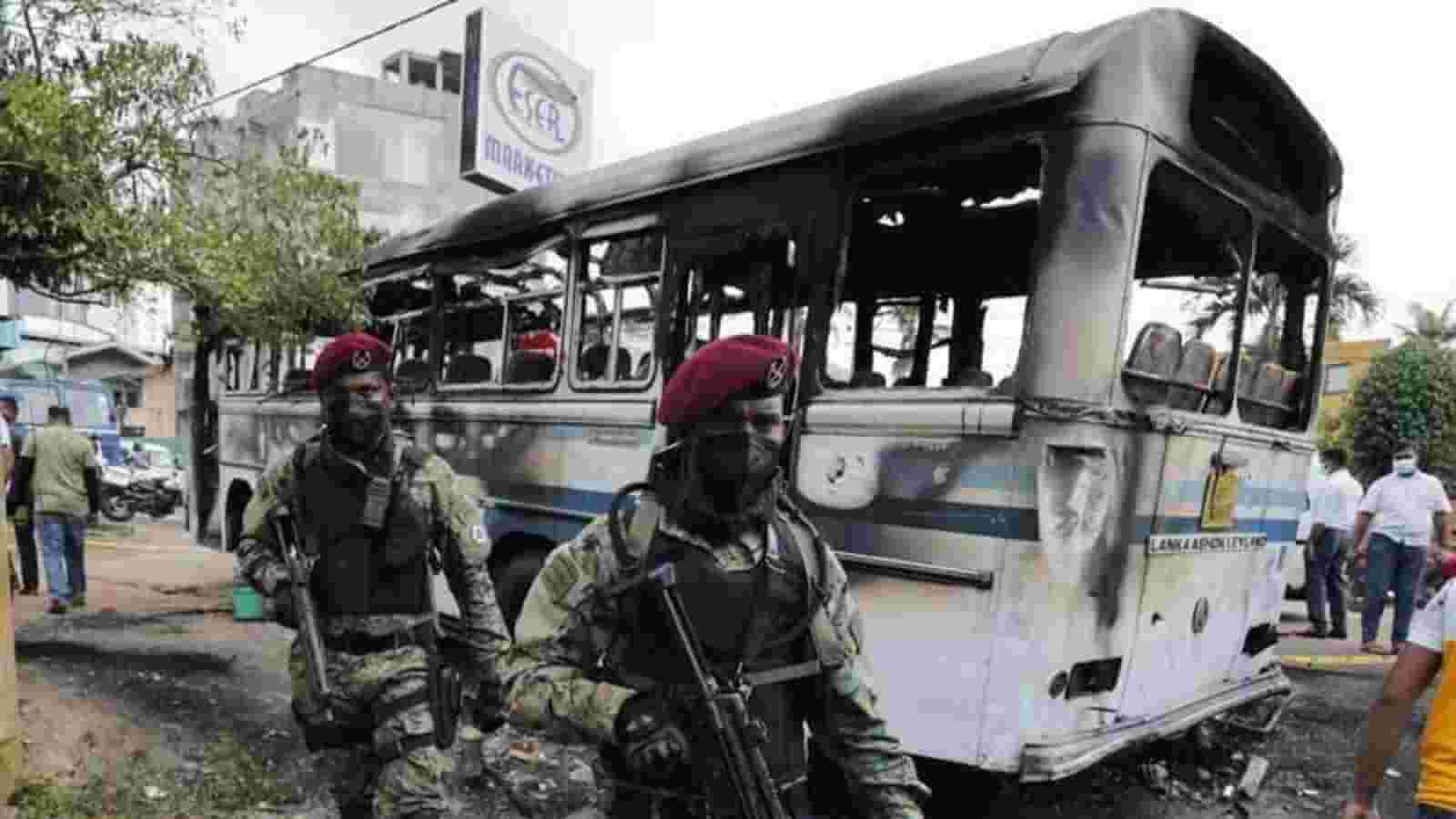On Tuesday, Sri Lankan President Gotabaya Rajapaksa revoked the state of emergency he put in place just last Friday in order to rein in protesters who had reached the gates of his residence. The decision was prompted by intensifying protests and eroding support both among coalition members and within the ruling Podujana Peramuna party. In fact, over the last few days, all 26 of his Cabinet members have resigned, the opposition has refused to join a unity government, coalition ally Freedom Party has withdrawn its support, and 50 MPs from his own party have announced their decision to leave the party. As a result, the ruling party’s seats have been reduced to 95 from 157, effectively erasing Rajapaksa’s majority in the 225-seat parliament.
When he first declared a state of emergency on April 1, Rajapaksa said that it was imposed for the “protection of public order and the maintenance of supplies and services essential to the life of the community.” However, citizens continued to protest against the government’s mishandling of the crisis and in fact intensified their demonstrations. At the time, Rajapaksa also announced a 36-hour long curfew and invoked legislation that gave excessive powers to security forces to arrest suspects without any warrants, a policy that led to well over 600 people being arrested.
Protest underway in front of President Gotabaya Rajapaksa's office in Colombo, #SriLanka demading his resignation pic.twitter.com/6daaRyLYQW
— Koustuv 🇮🇳 (@srdmk01) April 4, 2022
However, late on Tuesday, the Secretary to the President, Gamini Senarath, published an Extraordinary Gazette Notification announcing the removal of the state of emergency starting at midnight. The document said, “I, Gotabaya Rajapaksa, President of the Democratic Socialist Republic of Sri Lanka do hereby with effect from midnight of April 05, 2022, revoke the proclamation issued by me in terms of the powers vested in me by Section 2 of the Public Security Ordinance (Chapter 40) proclaiming the operation of the provisions of Part II of the aforesaid Ordinance throughout Sri Lanka with effect from April 01, 2022.”
Just hours before Gotabaya’s announcement, United Nations Human Rights Council (UNHRC) expressed concern about the emergency measures used by the Sri Lankan government to stifle public dissent against the spiralling economic crisis. Responding to reports of police atrocities, the organisation remarked that the government was preventing or discouraging citizens “from legitimately expressing their grievances through public protests,” adding, “The drift towards militarisation and the weakening of institutional checks and balances in Sri Lanka have affected the state’s ability to effectively tackle the economic crisis.”
#SriLanka: #StateofEmergency restrictions & the police’s excessive use of force are aimed at preventing and discouraging people from expressing grievances in peaceful protests. We call for dialogue between Gov+parties+civil society: https://t.co/qAWgDTJUmM pic.twitter.com/3RYE4QX5iQ
— UN Human Rights (@UNHumanRights) April 5, 2022
Adding to Rajapaksa’s problems, Minister of Finance Ali Sabry also stepped down from his position, saying that his decision was made “in the best interests of the country.” His resignation came just a day after he was appointed to the post to replace Basil Rajapaksa, who had resigned along with the other cabinet ministers on Sunday. Sabry’s resignation is particularly concerning, as Sri Lankan authorities are supposed to meet with representatives of the International Monetary Fund (IMF) soon to discuss a loan to alleviate the economic crisis.
Meanwhile, though President Rajapaksa continues to face pressure to step down, along with his brother Prime Minister (PM) Mahinda Rajapaksa, he remains adamant about retaining his position as the country’s leader. On Wednesday, Chief Government Whip Johnston Fernando stated, “As a responsible Government, we state President Gotabaya Rajapaksa will not resign from his post under any circumstances.”
Sri Lanka is currently in the middle of an unprecedented economic crisis that has depleted its foreign reserves and led to record-high inflation. Consequently, the government has been unable to import essential items such as food, medicines, and fuel, leading to severe shortages. The country has also instituted power cuts that have lasted up to 12 hours per day as part of a cost-cutting measure.
Sri Lanka Crisis Coverage:
- Sri Lanka: Opposition Parties Refuse to Join President Rajapaksa’s Unity Government
- Sri Lanka: Rajapaksa’s Cabinet Resigns En Masse As Protests Intensify Despite Crackdown
- Sri Lankan Economic Crisis Prompts Day-Long Power Cuts, Intense Protests Against Rajapaksa
- 16 Sri Lankan Tamils Reach Indian Shores Attempting to Escape Economic Crisis
- Sri Lanka: Thousands Demand Resignation of “Evil” Rajapaksa Gov’t Amid Severe Shortages
Against this backdrop, as demonstrators marched towards the Rajapaksa family home in Tangalle demanding their resignation on Monday, police forces used water cannons to disperse them. The government also restricted access to several social media platforms, including WhatsApp, Telegram, and Twitter, for about 15 hours, before it rescinded its ban owing to a huge public outcry. Due to the severe shortage of essential life-saving drugs, the government also announced a health emergency starting Tuesday.

